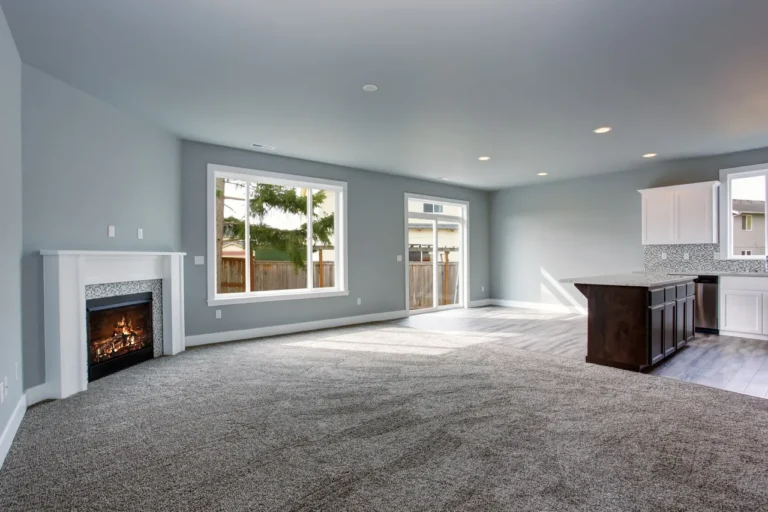Disclaimer: Laws regarding landlord-tenant relationships vary significantly by state and locality. The information provided here is a general overview and may not apply to your specific situation. It is essential to consult with a legal professional or your local housing authority for accurate advice.
Moving out of a rental property can be an emotional rollercoaster, combining the excitement of a new chapter with the stress of packing, cleaning, and saying goodbye to your old home. One of the major concerns during this transition is the security deposit—an amount that can be substantial and crucial for your financial well-being. To help you navigate this potentially tricky process, here’s an in-depth guide on what landlords can and cannot charge you for when you move out.
Understanding Security Deposit Deductions
1. What Can Landlords Charge You For?
When it comes to move-out charges, landlords generally have the right to deduct costs from your security deposit for several valid reasons. Here’s a breakdown of what you might be charged for:
- Unpaid Rent: This is perhaps the most straightforward deduction. Any rent that remains unpaid by the time you move out will be deducted from your deposit. To avoid this, ensure that all your rent payments are up-to-date and that any outstanding balances are cleared before your move-out date. It’s also wise to get a receipt or confirmation of your final payment.
- Late Fees: If your lease agreement includes provisions for late fees on overdue rent payments, these fees can be deducted from your security deposit. Always review your lease terms carefully to understand any penalties associated with late payments. Keep records of your rent payments and any late fees paid to avoid disputes.
- Cleaning Costs: Landlords are allowed to charge for professional cleaning if the property is left in an unusually dirty or unkempt state. To avoid cleaning charges, ensure the property is clean and well-maintained. Focus on areas like the kitchen, bathrooms, cabinets, drawers, windows, and floors, which are often closely inspected.
- Repairs for Damage Beyond Normal Wear and Tear: Landlords can deduct costs for repairing significant damage that goes beyond normal wear and tear. This includes large holes in walls, broken appliances caused by misuse, or extensive stains on carpets. Normal wear and tear—such as minor scuffs on walls or slightly worn carpets—should not incur additional charges. Conduct a thorough inspection of the property and make minor repairs if necessary.
- Pet Damage: If your lease allows pets, any damage caused by them can be deducted from your security deposit. This may include scratches on floors, carpets, or damage to doors. Be aware of any specific pet-related clauses in your lease agreement and address any damage caused by your pets before moving out.
- Unreturned Keys or Remotes: If you fail to return keys, remotes, or other property accessories, landlords can charge you for their replacement. To avoid these charges, ensure that all keys and remotes are returned and consider returning them in person to get confirmation from your landlord.
2. What Landlords Typically Cannot Charge You For:
While landlords have the right to deduct certain costs, there are also specific items they generally cannot charge you for. Knowing these can help you avoid unnecessary charges:
Using Security Deposit as Prepaid Rent: The security deposit is intended to cover damages, not to serve as prepaid rent for your final month. Make sure to pay your last month’s rent separately to avoid any confusion.
Normal Wear and Tear: This includes minor issues that naturally occur as a property ages, such as small nail holes, minor carpet wear, or slightly faded paint. These are considered part of the property’s natural aging process and should not result in deductions from your deposit.
Excessive Cleaning Fees: You are responsible for leaving the property in a reasonably clean condition, but you are not required to perform deep or professional-level cleaning unless your lease explicitly states otherwise. A deep and thorough cleaning before you leave can help ensure you meet reasonable cleanliness standards.
Repairs Due to Property Age or Neglect: If issues arise due to the property’s age or because the landlord has neglected necessary maintenance, these repairs are the landlord’s responsibility. You should not be charged for problems related to the property’s general deterioration or poor maintenance.
Using Security Deposit as Prepaid Rent: The security deposit is intended to cover damages, not to serve as prepaid rent for your final month. Make sure to pay your last month’s rent separately to avoid any confusion.
How to Protect Yourself and Your Deposit
To ensure a smooth move-out process and safeguard your security deposit, follow these practical steps:
- Document Everything: Before moving out, take detailed photos of the property’s condition. This should include pictures of each room, any existing damage, and the overall cleanliness. Doing the same when you move in can also be useful for comparison. This visual evidence can be crucial if a dispute arises over deductions.
- Perform a Thorough Cleaning: To avoid cleaning charges, leave the property in a clean and tidy condition. Focus on high-traffic areas like kitchens and bathrooms, and ensure that all surfaces are wiped down and floors are vacuumed or mopped. Consider hiring a professional cleaning service if you want to be extra cautious, but only if required by your lease.
- Report Maintenance Issues Promptly: Address any maintenance issues or repairs needed during your tenancy and report them to your landlord as soon as they arise. This can prevent small problems from becoming larger issues that might be unfairly attributed to you when you move out.
- Understand Local Landlord-Tenant Laws: Familiarize yourself with your state or locality’s specific laws regarding security deposits and move-out procedures. Each state has different regulations that can impact what your landlord can charge you for and how disputes should be handled.
- Keep Detailed Records: Retain copies of your lease agreement, payment receipts, and any correspondence with your landlord. This documentation can be invaluable if you need to contest a deduction or prove that you fulfilled your obligations.
If you believe your landlord has unfairly withheld your security deposit, you may have a legal options. It is best to avoid court so before you hand over the keys, it is best to have documentation of the charges you expect to incur. Of course, there may be items not seen by the homeowner, but it is always best to be clear before the keys are handed over.
By understanding your rights and responsibilities, you can protect yourself from unexpected charges and ensure a smooth move-out process.
Special Considerations for California Tenants
California has specific laws that offer additional protections and regulations for tenants:
- Time Lines: You should expect to pay rent until the keys are handed in. It is important to set a move out inspection and communicate if you will not meet that timeline.
- Security Deposit Return: Under California law, landlords must return your security deposit within 21 days of your move-out date. They must also provide an itemized list of deductions, if any. Ensure you provide your landlord with a forwarding address to receive this information.
- Security Deposit Limits: California law limits the amount a landlord can collect for security deposits. In 2024 some of these rules have changed depending on the ownership of the home and/or how many rental properties a homeowner has. One month’s worth of rent as a security deposit is a reasonable amount.
- Interest on Deposits: If a security deposit is held for more than one year, California landlords are required to pay interest on the deposit if the deposit earned interest. Some managers hold the deposit in non-interest bearing accounts.
Summary
Navigating the move-out process and understanding what your landlord can and cannot charge you for is crucial for avoiding unexpected surprises and ensuring that you get your security deposit back. By documenting the property’s condition, performing a thorough cleaning, addressing maintenance issues promptly, and staying informed about local laws, you can protect your deposit and enjoy a smoother transition to your new home.
In California, additional regulations provide further protections, so be sure to familiarize yourself with these to safeguard your deposit fully. If you believe your landlord has unfairly withheld your security deposit, consider seeking legal advice from a local attorney or the California Department of Consumer Affairs.
Important Note: While this guide offers a general overview, landlord-tenant laws can be complex and vary by location. Always consult with legal counsel or your local housing authority for advice specific to your situation. By staying informed and proactive, you can make your move-out experience as smooth and stress-free as possible.
Ready to Maximize Your Property’s Potential?
Let us handle the day-to-day operations while you enjoy hassle-free ownership. From tenant relations to maintenance, we’ve got it covered. Contact Us! Today to learn more about our property management services!
Join our franchising program and learn how to become a successful property manager. We provide all the training and support you need to build your business. Learn More About Franchising Opportunities and take the first step today!





